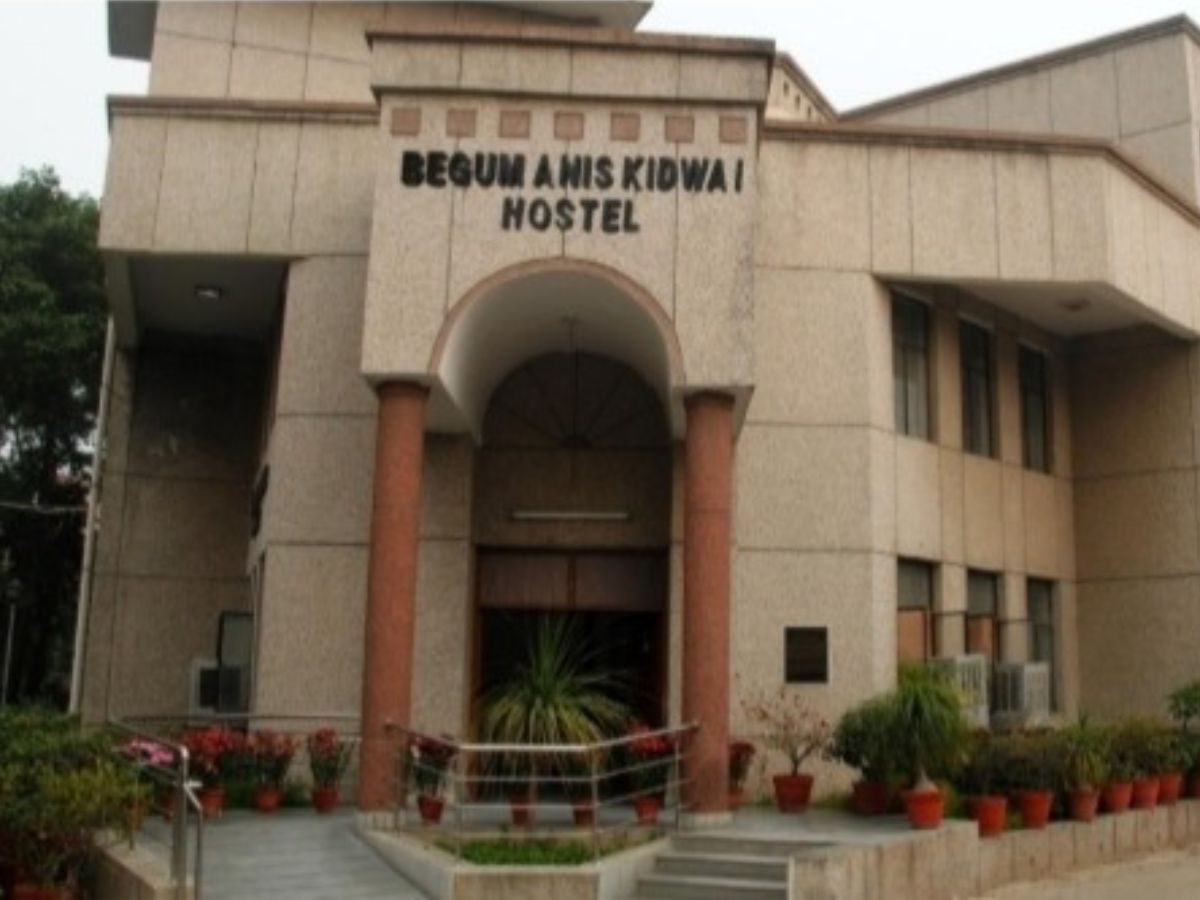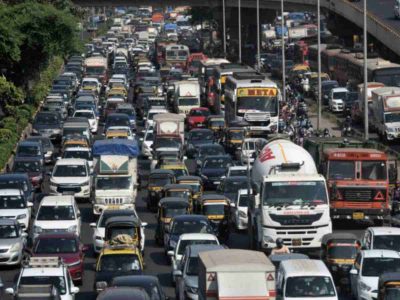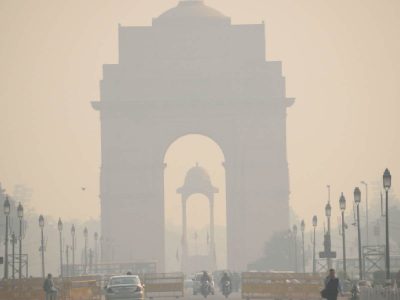Even as hostels in Jamia Millia Islamia are re-opening this month with increased capacity after a three-year hiatus, Mohammad Aqib, a PhD aspirant in mathematics, doesn’t seem excited.
Aqib’s hometown, Sambhal, lies at a distance of 187 kilometres from Delhi and he is in need of a hostel room like most outstation students. But Aqib did not even apply for it.
“It is no secret that hostels in Jamia are hard to get. Even during my bachelors, getting a hostel in the university seemed more difficult than getting enrolled in the university. But I could survive in my bachelors on rented accommodation because there was less pressure in studies and my parents were also expecting less from me. Now, since the pressure has doubled and parents also want me to make a living, it has become difficult. However, I have not applied for the hostel this year because I know I am not going to get it since I come from the nearby state of Uttar Pradesh,” complains Aqib, who has studied mathematics at the bachelors’ and masters’ levels.
Aqib emphasises that he does not fulfil the ‘criteria’ required for selection to the hostel.
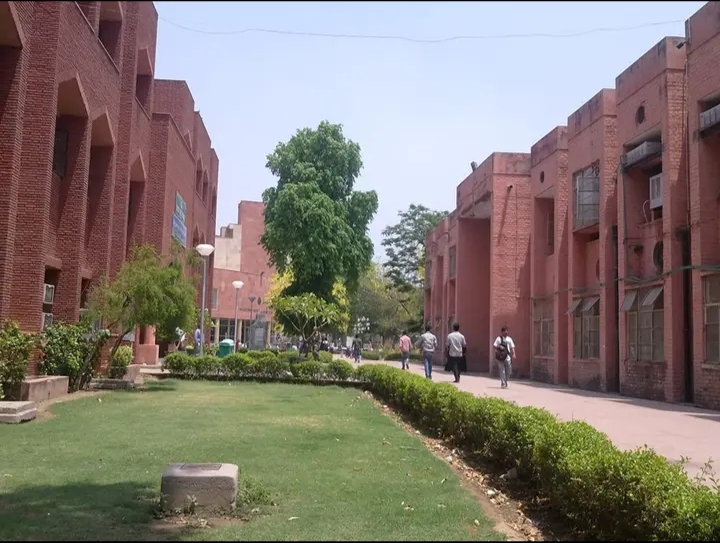
Students are selected on a number of parameters that include distance between their home and the university, marks in their qualifying educational programme, seniority in university and economic status. This is followed by an interview. Marks in qualifying examination and distance from home carry most weightage on the application.
“It barely makes sense. Everybody [from outside] needs a place to live. It does not matter if I am coming from 100 kms away or 1,000 kms away, I have to pay the rent if I don’t get the hostel,” Aqib remarks.
The allotment of hostel rooms will start from February 6 and end on February 15. The interviews were conducted in the month of December, 2022, and the list of selected students was displayed on January 31, 2023.
This comes after the university constructed new boys’ hostels and vertically extended the already existing ones to accommodate out-of-station students who often have to rent houses in the nearby areas of Batla House, Noor Nagar, Shaheen Bagh, Johri Farm, and Okhla Vihar. Many of the students were relieved with the information as the last two years had been tough on them, especially those who found continuing their studies difficult due to the mounting cost of living.
Qasim Ansari, a student of MA in Comparative Religion at the university, completed his bachelors in English here. He was residing in the hostel at the time of his bachelors and was able to focus on his studies. But the delay in re-opening of hostels during his masters degree course has made his life difficult. He was constantly disturbed by the rent and other expenses.
“There are a lot of difficulties I have had to face because I did not have a hostel. The first thing is, of course, expenses. And it becomes even more difficult for someone who comes from a financially weak background. I pay Rs 2,500 for rent. There are other expenses too. I find it difficult to afford as I am not working,” he says. He lives in a 2 BHK flat with three other flatmates.
After the announcement of lockdown in March, 2020, the hostels remained open for almost two months as the students were stuck. However, Ansari informs that the administration of the university asked the hostellers to vacate the residence and transferred them to Resident Coaching Academy (RCA) hostels.
“We thought that this would be free of cost as we were stuck. However, we had to leave finally as they asked us to pay some guest fees.”
Students often go to the reading hall of the university in the morning and stay there as late as 12 am to study as they cannot study in their rented homes due to lack of peace since youngsters live collectively to save money. Many of them share their rooms with two, sometimes even three roommates.
Aqib, who lives with two other roommates in a single room in Batla House, spends all his time in the reading hall of the university mostly due to lack of any other place to study.
Students say that getting a hostel in the university is a hectic process and many also alleged that the interview process ‘profiles’ the students. Female students often tend to wear traditional clothes for the hostel interview for better chances to get selected.
Mohammad Waris, a student at the department of English, comes from Bihar and lived in the hostel while completing bachelors’ degree. Waris has completed his masters’ degree without a hostel.
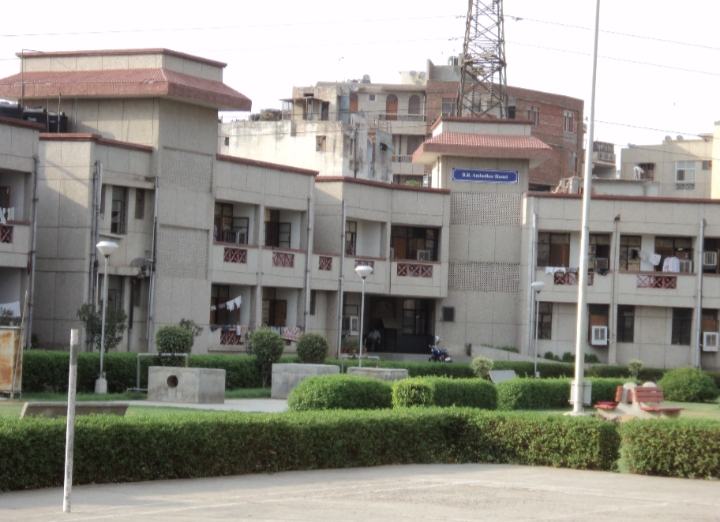
However, when he joined the masters’ degree course in 2020, he found it difficult to survive without a hostel room once offline classes resumed.
“I know for a fact that hostels make the life of students so much easier. It does not only give them a sense of financial security but a sense of belonging too. I missed my hostel days during masters more than anything. Jamia felt completely different without a hostel. There were financial difficulties. I had to live in a rented flat and I could not properly concentrate on my studies. Moreover, there are expectations from parents once you reach a certain age, and asking money from them at this stage adds insult to injury. Not getting a hostel also created so much mental instability. Not everyone gets a good flat and thus ends up living in poor conditions,” he says.
High rents
Due to delay in the re-opening of hostels, the rent of the flats in nearby areas has also increased.
Students, who had no other option, complained about the attitude of house owners. In fact, the rent grew one-and-a half-times, often almost doubled, making it even more difficult for students to survive.
“The flat you could get in Rs 8,000 was now rented out at Rs 12,000 a month,” Waris says.
The brokers and property dealers in the area confirmed this.
“One of the major reasons that house owners are literally exploiting tenants is that Jamia students are residing in these areas due to unavailability of hostels. This has also led to drastic increase in rent and demand for advance money and security, which could be negotiated before. As the hostel re-opens, it is likely to make the lives of people coming from outside Delhi easy,” says a broker.

